Filter by
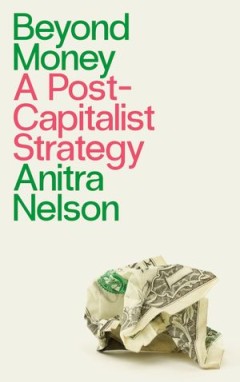
Beyond Money: A Postcapitalist Strategy
'A fascinating portal into arguments about why we need to get beyond money' - Harry Cleaver
- Edition
- -
- ISBN/ISSN
- 9781786807809
- Collation
- -
- Series Title
- -
- Call Number
- 330 NEL b
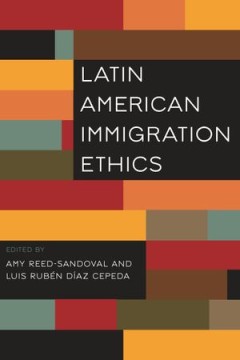
Latin American Immigration Ethics
Following an extended period of near silence on the subject, many social and political philosophers are now treating immigration as a central theme of the discipline. For the first time, this edited volume brings together original works by prominent philosophers writing about immigration ethics from within a Latin American context. Without eschewing relevant conceptual resources derived from Eu…
- Edition
- -
- ISBN/ISSN
- 9780816542727
- Collation
- -
- Series Title
- -
- Call Number
- 210.1
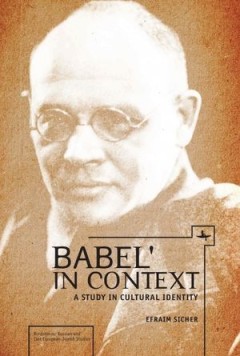
Babel' in Context : A Study in Cultural Identity
Isaak Babel (1894–1940) is arguably one of the greatest modern short story writers of the early twentieth century. Yet his life and work are shrouded in the mystery of who Babel was—an Odessa Jew who wrote in Russian, who came from one of the most vibrant centers of east European Jewish culture and all his life loved Yiddish and the stories of Sholom Aleichem. This is the first book in Engl…
- Edition
- -
- ISBN/ISSN
- 9781618118530
- Collation
- -
- Series Title
- -
- Call Number
- 928 SIC b
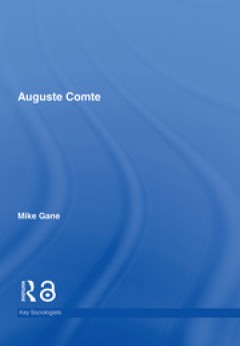
Auguste Comte
Auguste Comte is widely acknowledged as the founder of the science of sociology and the 'Religion of Humanity'. In this fascinating study, the first major reassessment of Comte’s sociology for many years, Mike Gane draws on recent scholarship and presents a new reading of this remarkable figure. Comte’s contributions to the history and philosophy of science have decisively influenced positi…
- Edition
- -
- ISBN/ISSN
- 978–0–415–38542–8
- Collation
- -
- Series Title
- -
- Call Number
- 923.6 GAN a
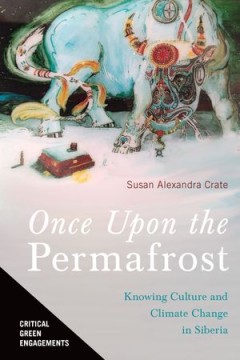
Once Upon the Permafrost: Knowing Culture and Climate Change in Siberia
Once Upon the Permafrost is a longitudinal climate ethnography about “knowing” a specific culture and the ecosystem that culture physically and spiritually depends on in the twenty-first-century context of climate change. The author, anthropologist Susan Alexandra Crate, has spent three decades working with Sakha, the Turkic-speaking horse and cattle agropastoralists of northeastern Siberia…
- Edition
- -
- ISBN/ISSN
- 9780816541546
- Collation
- -
- Series Title
- -
- Call Number
- 301 CRA o
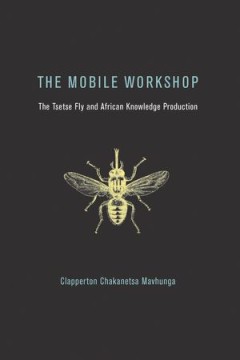
The Mobile Workshop:The Tsetse Fly and African Knowledge Production
How the presence of the tsetse fly turned the African forest into an open laboratory where African knowledge formed the basis of colonial tsetse control policies. The tsetse fly is a pan-African insect that bites an infective forest animal and ingests blood filled with invisible parasites, which it carries and transmits into cattle and people as it bites them, leading to n'gana (animal trypanos…
- Edition
- -
- ISBN/ISSN
- 9780262535021
- Collation
- -
- Series Title
- -
- Call Number
- -
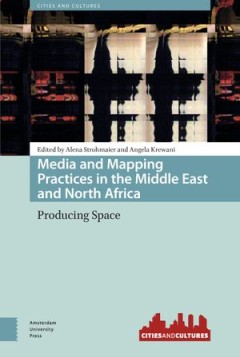
Media and Mapping Practices in the Middle East and North Africa: Producing Space
A few months into the popular uprisings in the Middle East and North Africa (MENA) region in 2009/10, the promises of social media, including its ability to influence a participatory governance model, grassroots civic engagement, new social dynamics, inclusive societies and new opportunities for businesses and entrepreneurs, became more evident than ever. Simultaneously, cartography received ne…
- Edition
- -
- ISBN/ISSN
- 9789048541508
- Collation
- -
- Series Title
- -
- Call Number
- -
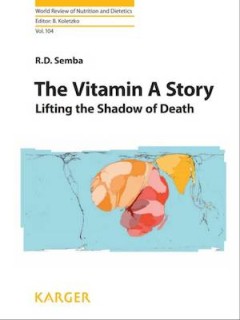
The Vitamin A Story : Lifting the Shadow of Death
This book shows how vitamin A deficiency – before the vitamin was known to scientists – affected millions of people throughout history. It is a story of sailors and soldiers, penniless mothers, orphaned infants, and young children left susceptible to blindness and fatal infections. We also glimpse the fortunate ones who, with ample vitamin A-rich food, escaped this elusive stalker…
- Edition
- -
- ISBN/ISSN
- 9783318021882
- Collation
- -
- Series Title
- -
- Call Number
- -
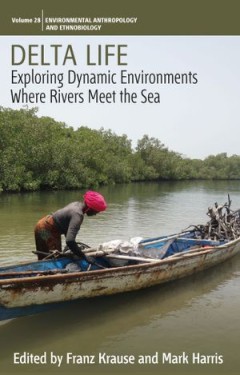
Delta Life Exploring Dynamic Environments where Rivers Meet the Sea
Proposing a series of innovative steps towards better understanding human lives at the interstices of water and land, this volume includes eight ethnographies from deltas around the world. The book presents ‘delta life’ with intimate descriptions of the predicaments, imaginations and activities of delta inhabitants. Conceptually, the collection develops ‘delta life’ as a metaphor for ap…
- Edition
- -
- ISBN/ISSN
- 9781800731240
- Collation
- -
- Series Title
- -
- Call Number
- -
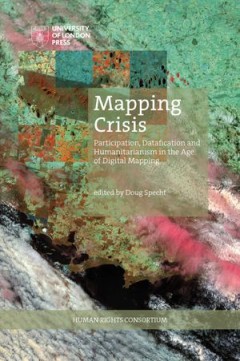
Mapping Crisis: Participation, Datafication and Humanitarianism in the Age of…
The digital age has thrown questions of representation, participation and humanitarianism back to the fore, as machine learning, algorithms and big data centres take over the process of mapping the subjugated and subaltern. Since the rise of Google Earth in 2005, there has been an explosion in the use of mapping tools to quantify and assess the needs of those in crisis, including those affected…
- Edition
- -
- ISBN/ISSN
- 9781912250332
- Collation
- -
- Series Title
- -
- Call Number
- -
 Computer Science, Information & General Works
Computer Science, Information & General Works  Philosophy & Psychology
Philosophy & Psychology  Religion
Religion  Social Sciences
Social Sciences  Language
Language  Pure Science
Pure Science  Applied Sciences
Applied Sciences  Art & Recreation
Art & Recreation  Literature
Literature  History & Geography
History & Geography